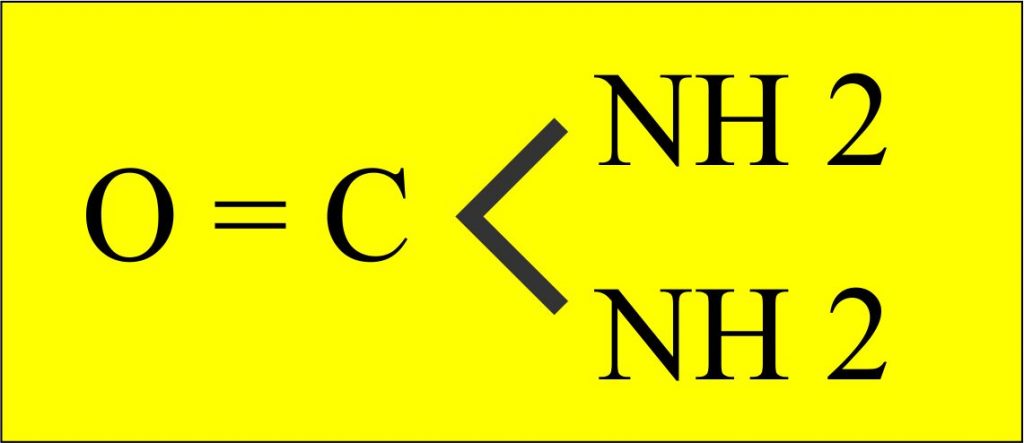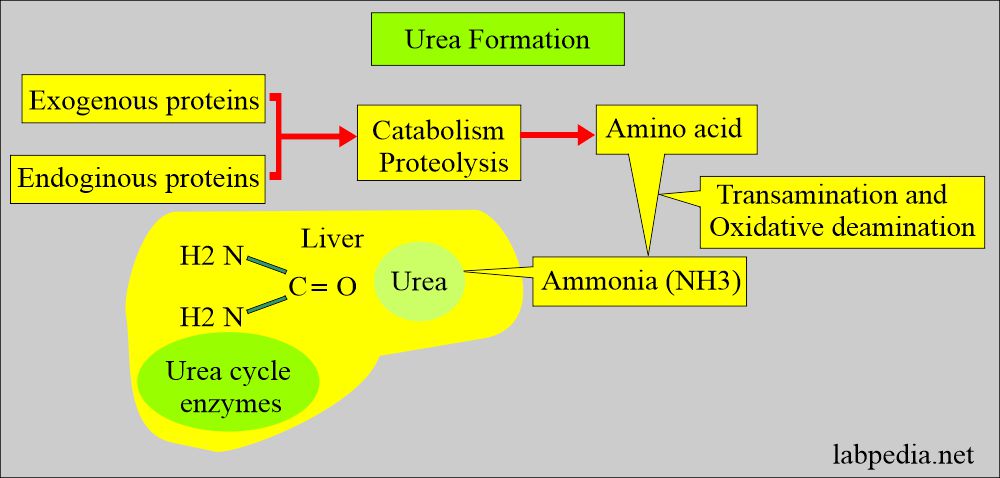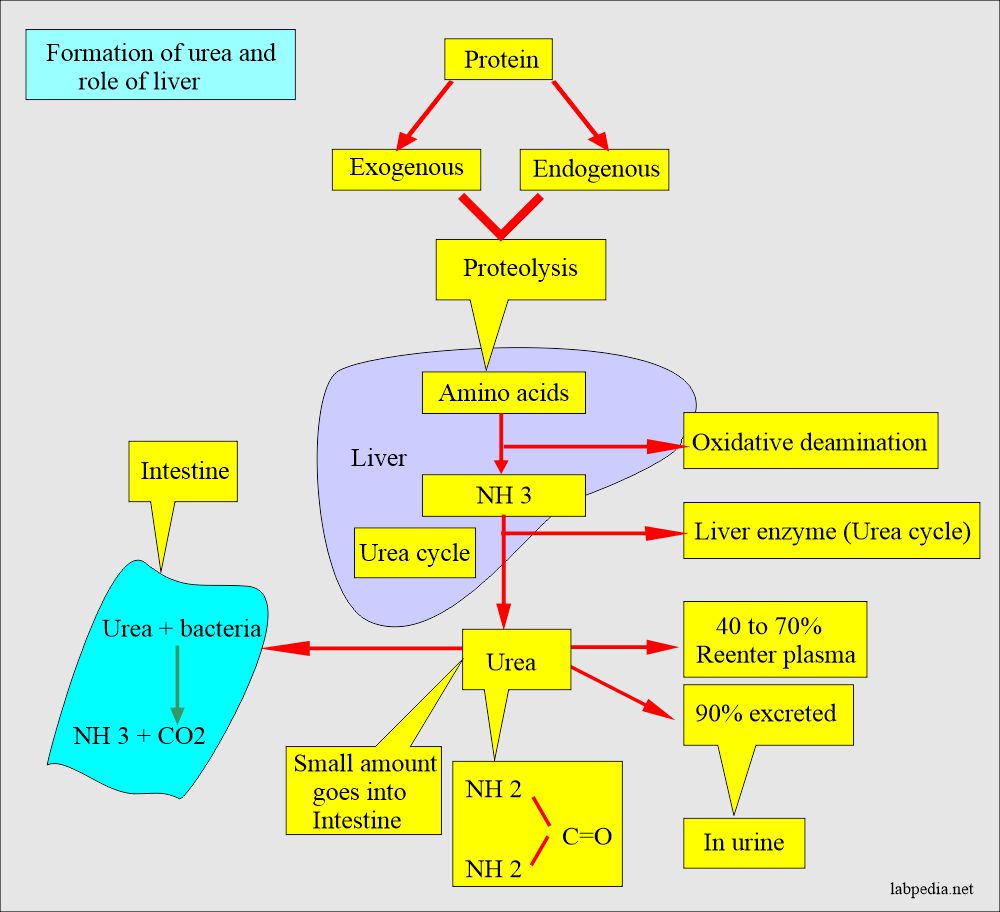Urine 24 hours Urea, Urine Urea Nitrogen/24 Hours
Urine 24 hours urea
What sample is needed for urine 24 hours urea?
- The test sample is urine.
- Collected urine for 24 hours.
- The urine sample is stable at 4 to 8 °C for 4 days or preserved with thymol to avoid bacterial action.
- Discard the first urine sample and note the time. Add the last sample of urine to the container.
- 10 grams of boric acid can be used as a preservative/for 24 hours.
What are the indications for urine 24-hour urea?
- This test is mainly used to:
- Determine protein metabolism.
- It determines the amount of protein needed by severely ill patients.
- It gives information about kidney function.
- It can monitor kidney disease.
- Patients with confirmed or suspected protein digestion and absorption problems.
- Patients on long-term enteral nutrition or parenteral nutrition.
How will you discuss the pathophysiology of blood urea?
- Urea formula =

- Urea is the major excretory product of protein metabolism.
- Urea is a low molecular weight substance easily excreted by glomeruli and mostly in the urine.
- The kidneys excrete urea, so the excretion of urea can reflect kidney function.
- It is synthesized in the liver, carried to the kidney, and filtered through the glomeruli, mostly into the urine.
- 40% is reabsorbed by passive diffusion.
- The rate of absorption depends upon:
- Urine flow rate.
- The degree of hydration.
- 10 % of urea is excreted through:
- GI tract.
- Skin.
- Blood urea level depends upon:
- Renal function and perfusion.
- The protein content of the diet.
- Amount of protein catabolism.
What is the normal urine urea nitrogen?
Source 1
Urine urea nitrogen
- 12 to 20 g/day (428.4 to 714 mmol/day).
Another source
- 6 to 7 G /24 hours ( 60 to 90 mg/dL )
- Another reference says:
- 7 to 20 g /total volume
- 12 to 24 g /24 hours.
- This also depends upon the protein intake.
What are the causes of decreased urine urea?
- Malnutrition.
- Too little protein is in the diet.
- Kidney dysfunction.
- Increased reabsorption.
What are the causes of increased urine urea levels?
- Excessive protein intake.
Increased protein catabolism.
Normal urine picture:
| Physical features | Chemical features | Microscopic findings |
|
|
|
Questions and answers?
Question 1: How will you define ornithine?
Question 2: How much urea is excreted by the kidneys?




